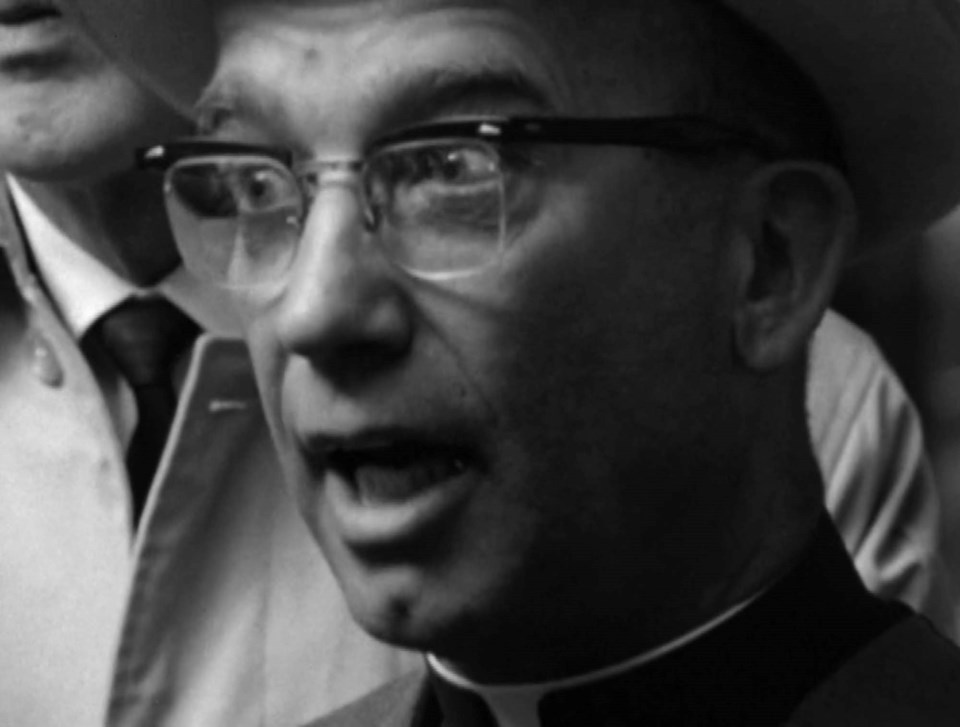Through an investigative podcast series, Saskatchewan-based journalist Connie Walker has found that the namesake of St. Albert cul-de-sac Duhaime Place, Father Anthony (Antonio) Duhaime, allegedly sexually abused as many as 15 Indigenous children while serving as the principal of a residential school in Duck Lake, Saskatchewan.
Walker's podcast, Stolen: Surviving St. Michael's, details her investigation into the abuse her father and many other family members experienced while attending St. Michael's residential school between 1961-1968. The podcast was produced by Spotify and Gimlet Media, and began running on May 17. Walker formerly worked as journalist for CBC, where she created the investigative podcast series Missing and Murdered: Finding Cleo.
Through an access to information and protection of privacy (ATIPP) request made to the Canadian Department of Justice, Walker obtained the documents from 482 civil lawsuits filed by plaintiffs who attended St. Michael's residential school. In episode seven of the series, released on June 21, Walker says "most of these allegations were never tested or proven in court because many of the claims were dropped so that survivors could participate in the [Independent Assessment Process]."
The Independent Assessment Process (IAP) was established in 2007 under the Indian Residential Schools Settlement Agreement in order to resolve claims of sexual, physical, and emotional abuse suffered by residential school survivors. The IAP received more than 38,000 applications by the Sept. 2012 deadline.
Among the 482 civil lawsuits, 15 included statements of claim from plaintiffs alleging Duhaime sexually abused them, Walker reported.
In the City of St. Albert's "A History of Street Names" document from 2018, Duhaime is only listed as the "Director of the Retreat House (1954)." The "Retreat House" refers to the Star of the North Retreat House in St. Albert. On the Retreat House's website, it says the house "opened in 1953, offering retreats and spiritual oasis to the Christian community at large" in St. Albert.
The city's document does not mention Duhaime's involvement in any residential schools.
When The Gazette contacted the city on July 12 about why the document doesn't mention Duhaime's involvement, city communication supervisor, Marci Ng, said in an email that the city was initially uncertain whether the Father Duhaime named in Walker's investigation was the same Father Duhaime that Duhaime Place was named after.
"While the names were very similar, the City needed to confirm and initiated an inquiry into the origin of the name with the Arts and Heritage Foundation (AHF). On July 13, the City and AHF met, and the archivist confirmed it was the same individual," Ng wrote in a July 15 email.
At the Musée Héritage Museum archives in St. Albert, there's an article about Duhaime that archivist Vino Vipulanantharajah said he believes was written by Museum staff in the late 1980s as part of a newsletter. The article states that Duhaime was the principal of St. Michael's from 1962 to 1968, before becoming the principal of St. Mary's residential school in Cardston, Alberta from 1968 to 1979.
Duhaime Place was registered in St. Albert in 1994, Ng said. According to the "LandScape Interactive Map" accessible on the city's website, the houses on Duhaime Place were built in 1995 and 1996.
Duhaime, who died in 2002 at the age of 87, was a member of the Oblates of Mary Immaculate, a congregation of the Catholic Church. The Oblates operated 48 residential schools in Canada, Walker reported.
The Oblates issued a public apology for their involvement in Canadian residential schools in 1991, three years before Duhaime Place was registered in St. Albert.
In their apology, the Oblates say, "anthropological and sociological insights of the late 20th century have shown how deep, unchallenged, and damaging was the naive cultural, ethnic, linguistic, and religious superiority complex of Christian Europe when its peoples met and interrelated with the aboriginal peoples of North America."
"As well, recent criticisms of Indian residential schools and the exposure of instances of physical and sexual abuse within these schools call for such an apology."
Review of municipal naming policy
In December of last year, council passed a motion to fund a review of the municipal naming policy and gather community feedback on whether the city should rename streets and neighbourhoods named after people extensively involved in residential schools, such as Bishop Vital Grandin.
The motion was moved by Coun. Natalie Joly and council approved $325,000 for the review, engagement effort, research, and development of educational materials, with only Coun. Shelley Biermanski opposed.
"Administration is currently developing a plan to review the municipal naming policy that will identify a process on how the city will approach naming in the future, and how we will evaluate existing names should they be identified as concerning," Ng said.
"The review will include multiple public participation opportunities that will take place in the fall of 2022, and administration will provide council with a report and recommendations in early 2023."
Ng said that the city plans to announce the dates and formats of public engagement opportunities in late August, and the public meetings are expected to begin in September.
"It is prudent to defer any decision on potentially renaming streets or amenities until the review is complete. As the Duhaime name has been identified as concerning, once the new policy and process is established in early 2023, it can be reviewed at that time,” Ng wrote.
In an email, Joly said, "I'm looking forward to the recommendations of the engagement project [and] re-write so that we can align our naming process and actions regarding existing names with our values."




